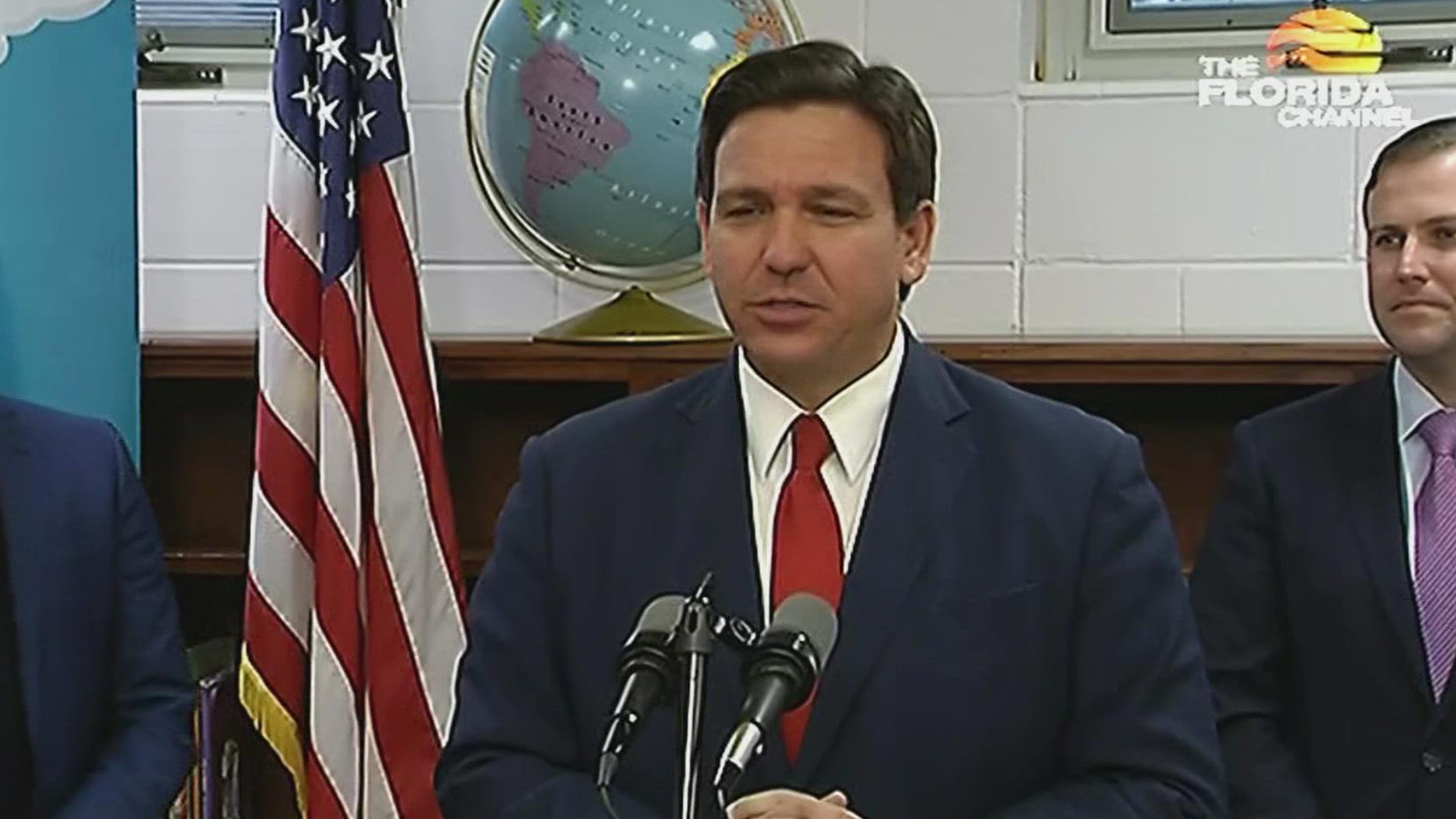CRAWFORDVILLE, Fla. — Florida Gov. Ron DeSantis says the state will "fight back" against the U.S. Food and Drug Administration's limitation of popular COVID-19 monoclonal antibody treatments, though it's not yet known how exactly.
The FDA says data shows they are "highly unlikely" to be effective against the omicron variant of the virus, which is estimated to account for a vast majority of COVID cases in the U.S.
"This is not the way you help people," DeSantis said Tuesday to reporters, noting that many people across the state woke up that morning with their treatment appointments canceled.
On Monday, the FDA said it rescinded the emergency use authorization for two monoclonal antibody treatments produced by companies Regeneron and Eli Lilly. They remain authorized "only when the patient is likely to have been infected with or exposed to a variant that is susceptible to these treatments," the FDA said.
DeSantis claims the FDA's decision was based on a single study that wasn't properly peer-reviewed.
"[The Biden Administration] is relying on revoking this and pulling the rug out from under people on a single, non-peer-reviewed, non-clinical study that was actually done by a consultant for a rival company of the other two monoclonal antibody treatments," DeSantis said.
He added that Floridians have benefited from the state’s treatment sites.
In a release, the FDA says the National Institutes of Health's COVID-19 Guidelines Panel recently recommended against using Regeneron (casirivimab and imdevimab) and Eli Lilly (bamlanivimab and etesevimab) treatments for COVID-19 because of their ineffectiveness against omicron.
Omicron is currently responsible for about 99 percent of all COVID-19 cases in the U.S., according to a Jan. 15 estimate from the Centers for Disease Control and Prevention.
This NIH guidelines panel is made up of independent national experts, according to the FDA.
The FDA also says that while these two monoclonal treatments no longer have emergency authorization use, other treatment options exist that should be effective against omicron. These include Paxlovid, sotrovimab, remdesivir, and molnupiravir.
DeSantis said Tuesday that both Regeneron and Eli Lilly were treatments Florida "pioneered" in 2021 and advocated for the treatments to be used for patients. He added that "overwhelmingly" people who receive these treatments are already vaccinated against COVID-19 and are deemed "high-risk."
As to what "fighting back" against the FDA's decision will look like, DeSantis says his administration is working on it.
If the two monoclonal antibody treatments prove effective against future variants, the FDA said it could reauthorize their use.
DeSantis has heavily promoted antibody drugs as a signature part of his administration's COVID-19 response, setting up infusion sites and lauding them at news conferences, while opposing vaccine mandates and other public health measures.
The move comes days after regulators broadened the use of remdesivir — the first drug approved for COVID-19 — to treat more patients.
On Friday, the FDA expanded the antiviral’s approval to include adults and children with early COVID-19 who face a high risk of ending up in the hospital. Remdesivir previously had been limited to hospitalized patients.
Mentioning this drug briefly, DeSantis said he didn't think it was as promising or effective as other treatments.
The drugs are not a substitute for vaccination and are generally reserved for people who are the most vulnerable, including seniors, transplant recipients and those with conditions like heart disease and diabetes.
The Associated Press contributed to this report.

